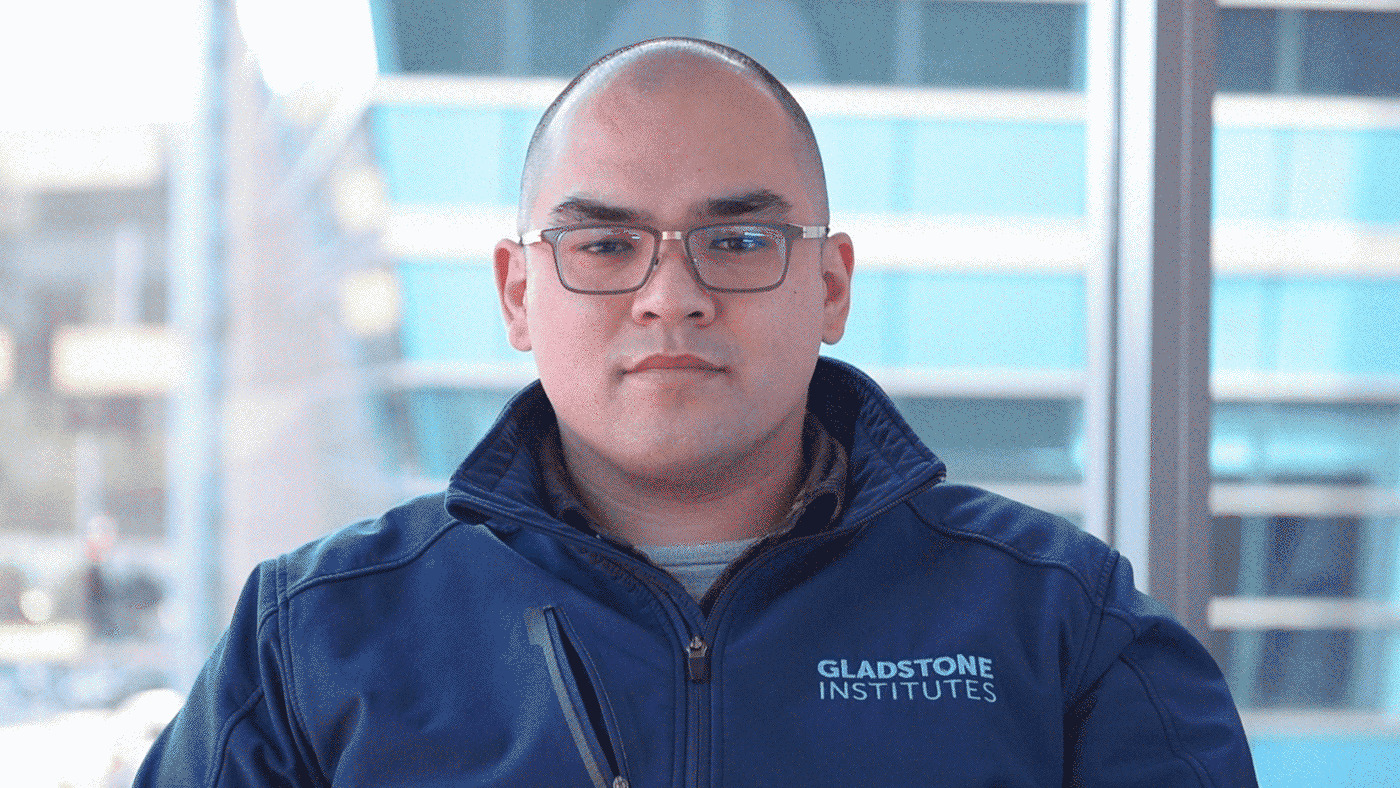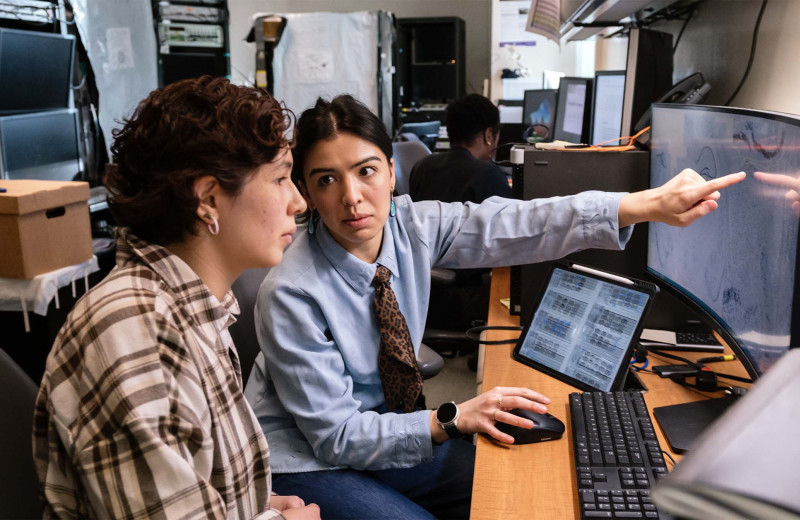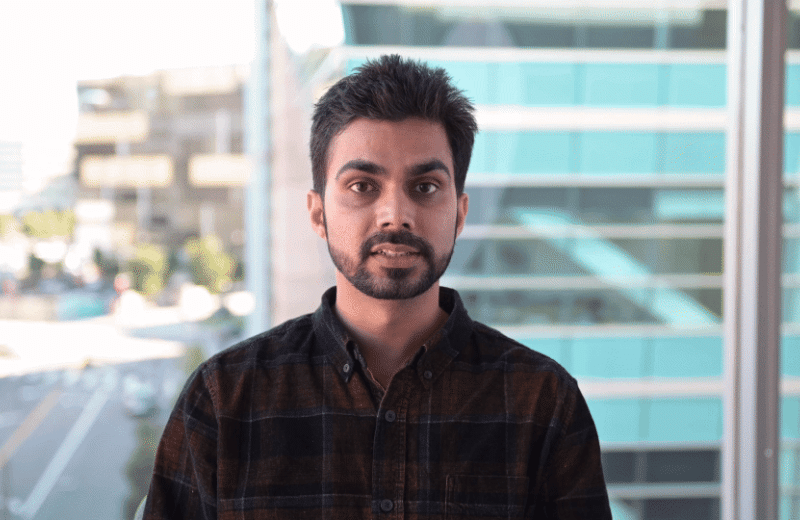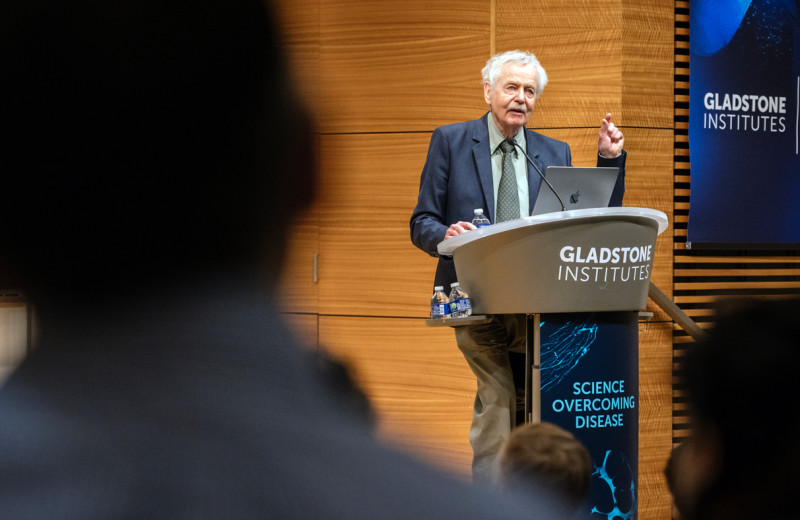Gladstone NOW: The Campaign Join Us on the Journey✕

Tristan Telson explains what Veterans Day means to him and his favorite part of working at Gladstone.
Tristan Telson (he/him), a San Francisco native, is an information technology technician at Gladstone. He served in the US Army from 2007 to 2010, where he trained as an information technology specialist. After his service, Telson returned to San Francisco where he completed his BA in creative writing at San Francisco State University.
What brought you to Gladstone?
I wanted to change the environment I had been working in. I was previously at another nonprofit that was focused on education and I wanted to change my skill set. At my previous job, I had been elevated to management but I really missed working directly with clients and users.
I was looking for different opportunities and what brought me specifically to Gladstone was the recommendation from a friend who also works in the IT Department. When I looked up Gladstone and found out what it was about, I was attracted to the organization. Gladstone’s mission intrigued me. I had never thought I could be a part of science in such a way before.
What is your role at Gladstone?
When I initially started at Gladstone, I was at the service desk helping community members navigate IT issues. Last year, I was promoted to audio-visual technician. So my role now is supporting people’s needs and being the subject matter expert for audio-visual needs within the building—like taking questions about using Zoom, which of course has been a big subject for everyone in the last 2 years.
What do you like most about your job?
What I love about working at Gladstone, and my job in particular, is that on any day I’m able to meet with a wide range of people, from a student intern to the president of Gladstone.
It’s just a really great opportunity to meet so many different and diverse faces here and then get to engage with all these different voices. It gives me a chance to get little peeks into what each lab and department is working on.
Who has influenced your career?
The biggest influence of my career was a previous supervisor of mine—Andrew Brown. One of the most valuable things he taught me was how to engage with people and dig deeper to find out what their needs really are. Someone will come to you with a problem and maybe even a solution that they’re looking for, but I think an important part of communicating with people is listening to what their problems are and really identifying their needs. Sometimes those needs are just reassurance that their situation is going to be taken care of or looked into.
I really like connecting with people in a way that lets them know I’m working for them.
What do you like to do in your free time?
I like to read, watch movies, and play board games.
I find board games really interesting. I particularly like the hobbyist level of board gaming. They’re these very specialized board games and they can honestly seem a little boring because you might be running a railroad company where your actions in the game are shipping coal, building more lines of tracks, and balancing the books. Sometimes it’s like I'm working a job. But I think of it as a critical thinking puzzle.
I also really like the social aspect of board games—the competition creates a dynamic environment. When you’re playing a game with someone, either competitively or cooperatively, you get to see a different side of them. People kind of let down some of their social barriers in that environment. It’s a great way to meet and engage with people, and hopefully I can do a lot more in the next few years.
If you could learn to do anything, what would it be?
I really want to learn more languages. Unfortunately, I’m only an English speaker, even though my mom is from Vietnam and my dad is the child of Polish and Italian immigrants.
Unfortunately, my mom and grandma didn’t want to teach me Vietnamese when I was a child because they were worried that it would get in the way of me integrating with American culture. But all my aunts and cousins are bilingual. So, being able to speak another language was something I always wanted to do.
If I could learn anything, I would learn as many languages as possible.
Veterans Day recently just passed. As a veteran, what does this day mean to you?
For me, it’s a day of personal reflection.
A lot of companies run ads and do Veterans Day deals, but I really take the time to think about my service, the people I served with, and what it means to be a veteran. Currently, we have an all volunteer military, so everyone I served with chose it.
I’m thankful for my experience. It really shaped me as a person and I’m grateful for that. As a veteran, I’ve been able to get a lot of support from those around me. But I know that’s not the case for everyone. There are a tremendous number of veterans out there who continue to need support. I’m incredibly grateful for their service and hope they’re able to get the support they need.
Want to Join the Team?
Our people are our most important asset. We offer a wide array of career opportunities both in our administrative offices and in our labs.
Explore CareersVoices of Outstanding Mentorship
Voices of Outstanding Mentorship
Three recipients of Gladstone’s Outstanding Mentoring Award share their personal approaches to mentorship and reflect how this passion has shaped their own growth as leaders.
Profile Roan Lab Graduate Students and PostdocsMeet Gladstone: Shyam Jinagal
Meet Gladstone: Shyam Jinagal
Shyam Jinagal explores how genetics, aging, and regeneration shape the heart—and how those insights could one day restore heart function after injury.
Graduate Students and Postdocs Profile Cardiovascular Disease Srivastava LabA Sculptor of Modern Regenerative Medicine
A Sculptor of Modern Regenerative Medicine
Among his myriad accomplishments, Rudolf Jaenisch—winner of the 2025 Ogawa-Yamanaka Stem Cell Prize—was the first to demonstrate the potential of induced pluripotent stem cells to treat disease.
Awards Ogawa Stem Cell Prize Profile Regenerative Medicine Stem Cells/iPSCs



